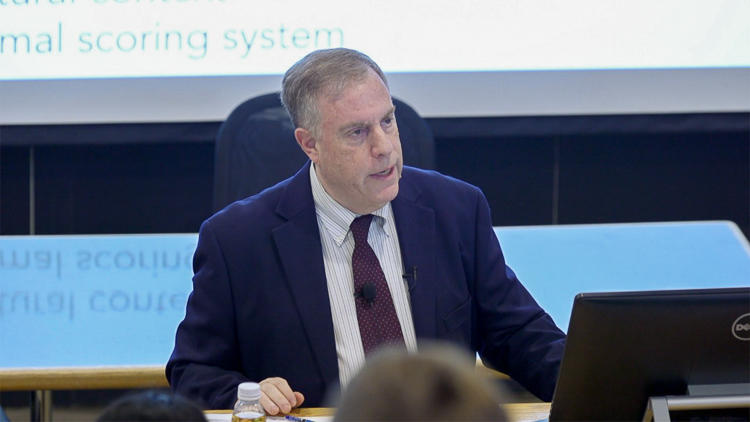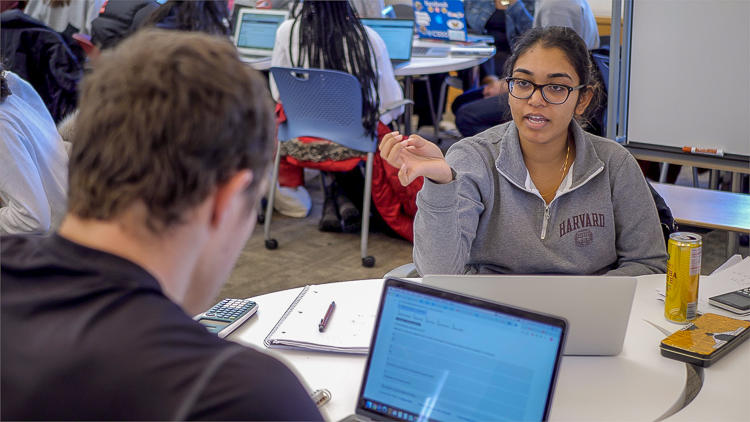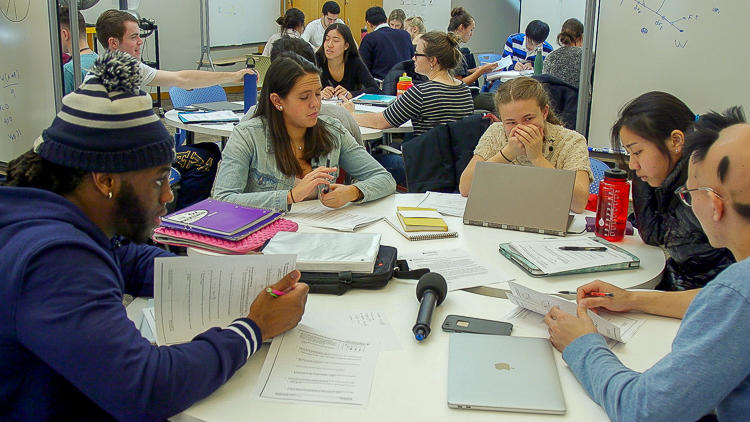Though simulations can be powerful learning experiences on their own, students’ learning is enhanced when instructors give them adequate time to process what they just experienced. Particularly when pressure runs high, fostering a structured space for students to debrief is critical. In Brian Mandell’s class, immediately after simulations conclude, student groups offer each member feedback about their performance in the activity. With the simulation still fresh in students’ minds, “hot” debriefs become candid spaces in which students provide one another specific, constructive support.
Giving peer feedback promptly with "hot" debriefs
Instructor
Brian Mandell, Mohamed Kamal Senior Lecturer in Negotiation and Public Policy
Student Group
Graduate
School
Harvard Kennedy School
Course
Advanced Workshop in Multiparty Negotiation and Conflict Resolution
Group Size
60 students
- Create space for students to debrief immediately after active learning takes place when students’ experiences are still fresh in their minds. This timing ensures that discussions retain the simulation’s specificity and impact.
- Scaffold students’ giving and receiving of feedback. Consider modeling how debriefs should look and sound. Provide exemplars of the type of feedback you expect students to give one another.
- Encourage students to be constructive but kind with the feedback they provide peers. Discourage vague evaluations and empty praise; instead, push them to be specific and honest in peer-to-peer debriefs.
- Active learning experiences, such as simulations, may engage learners in emotional events. Accordingly, debriefing remains important for students’ learning in the simulation (Fanning & Gaba, 2007; Issenberg et al., 2005);
- NPR provides an excerpt from the helpful and accessible text Thanks for the Feedback by Douglas Stone and Sheila Heen which outlines how to give and receive feedback effectively.
- An Edutopia piece provides concrete, research-backed suggestions for ways that teachers (and peers) can give better feedback.
- This Faculty Focus article describes the many different ways that feedback can be perceived by students and advises instructors to have explicit discussions with their students about feedback to provide context and reduce misunderstanding.




